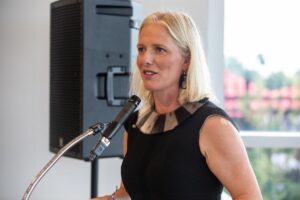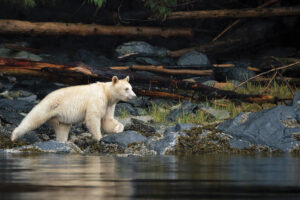
People & Culture
Kahkiihtwaam ee-pee-kiiweehtataahk: Bringing it back home again
The story of how a critically endangered Indigenous language can be saved
- 6310 words
- 26 minutes
This article is over 5 years old and may contain outdated information.
People & Culture

Few historical mysteries have captured the public’s imagination quite like the lost Franklin expedition. Franklin enthusiasts pore over documents and artifacts and gather in Internet forums to share their theories on what happened to the 129 men who vanished in the Canadian Arctic.
On April 12, many of those enthusiasts had a rare opportunity to come together in the same room as The Royal Canadian Geographical Society presented its 2016 Can Geo Talks, an evening of thought-provoking discussion on Franklin’s fate and the role of the Inuit in unraveling the mystery.
In introducing the evening, RCGS CEO John Geiger, himself the co-author of two books on Franklin, called the expedition “the greatest polar exploration disaster in history, and a mass disaster that has haunted our collective psyche ever since.”
The talk, held at the Canadian Museum of History in Gatineau, Que., revolved around the discovery of the HMS Erebus, one of two ships from the Franklin Expedition, which was found in 2014 thanks to a combination of modern technology and Inuit oral histories.
The keynote speaker was Captain Dave Woodman, who has been highly involved in the search for Erebus, organizing nine expeditions to the Arctic between 1992 and 2004. Woodman placed a strong emphasis on the importance of Inuit involvement in the finding, and in the uncovering of what truly happened to the expedition’s crew members.
“Part of the reason, I think, that it took so long for anyone to pay attention to Inuit testimony is that … they were being told a narration they didn’t want to believe,” said Woodman. “They wanted to believe that the Franklin Expedition failed heroically, but they were being told that the party had been broken up into little bits and pieces, [that] some people were left behind to die and even worse, some cannibalism had taken place.”
Following Woodman’s presentation, moderator Alanna Mitchell, Geiger’s co-author of Franklin’s Lost Ship: The Historic Discovery of HMS Erebus, introduced a collection of the top experts on Franklin, who shared their thoughts on the role of the Inuit in the ongoing search for traces of the vanished expedition.
Parks Canada senior underwater archaeologist Ryan Harris, who organized the successful Parks Canada-led 2014 Victoria Strait Expedition, spoke of his experiences hunting for, and eventually diving on, the wreck of Erebus, while celebrated Inuit oral historian Louie Kamookak spoke of the importance of geneology and Inuit naming conventions in the passing down of traditional knowledge.
Dr. Karen Ryan, the Canadian Museum of History’s Curator for Northern Canada, shared details on a huge exhibition about the Franklin expedition coming to the museum in 2018.
Dr. Russell Potter, an academic and author of the forthcoming Finding Franklin: The Untold Story of a One Hundred and Sixty-Five Year Search, spoke on the importance of technology, new and old. Lastly, author and historian Ken McGoogan – who purchased tickets to the talk and was pressed into joining the expert panel at the last minute – spoke of the historical significance of other figures involved with the expedition, such as John Rae.
American polar historian Glenn M. Stein, author of Discovering the North-West Passage: The Four-Year Arctic Odyssey of H.M.S. Investigator and the McClure Expedition, a newly released book on one of the Franklin search expeditions, led off questions from the audience.
Though the full truth about what happened to the Franklin expedition is probably lost to history, the group agreed the next steps include finding the second ship of the Franklin Expedition, the HMS Terror, and hopefully, someday, the grave of John Franklin himself.
Listen to the full talk below. Scroll for a recommended reading list:
Many of the speakers at the event have written extensively on the subject of Sir John Franklin. Discover their excellent books below. David Woodman
Owen Beattie and John Geiger
John Geiger and Alanna Mitchell
Russell Potter
Ken McGoogan
Glenn M. Stein
Are you passionate about Canadian geography?
You can support Canadian Geographic in 3 ways:

People & Culture
The story of how a critically endangered Indigenous language can be saved

People & Culture
A century after the first woman was elected to the Canadian Parliament, one of the most prominent figures in present-day politics shares her thoughts on how to amplify diverse voices in the Commons

People & Culture
For unhoused residents and those who help them, the pandemic was another wave in a rising tide of challenges

Wildlife
How ‘maas ol, the spirit bear, connects us to the last glacial maximum of the Pacific Northwest